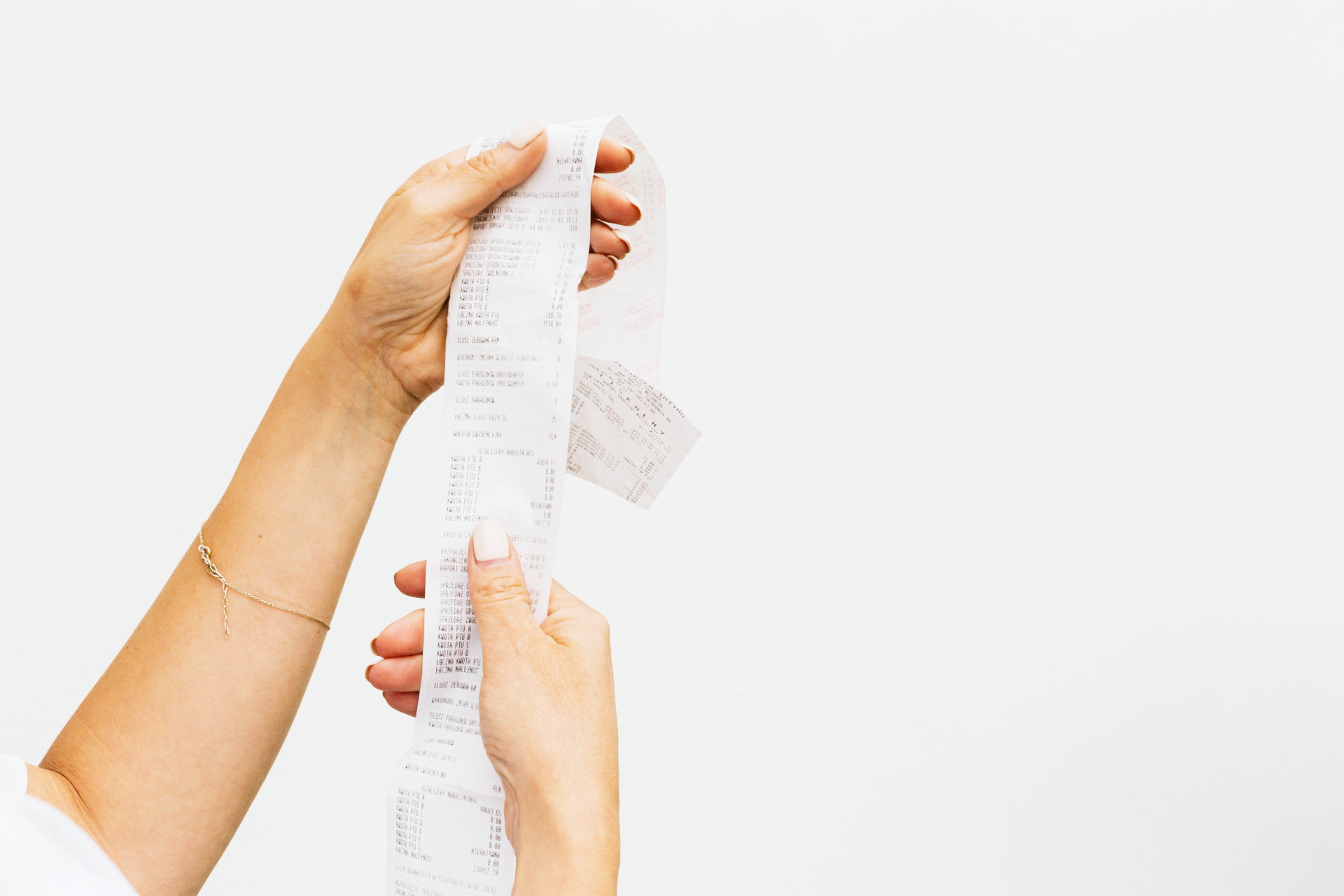Are you spending too much and unsure where to make the cuts? Where should one begin? First, consider which expenses can be reduced.
A significant portion of my articles on money management revolves around identifying the most suitable areas to reduce your expenses. However, I have decided to delve further into the topic at hand in this particular article. I have taken the liberty of assembling a comprehensive list that highlights the numerous inefficient aspects found in the majority of individuals’ budgets.
Cable & Streaming subscription
It’s easy to overspend in many areas, and entertainment is one of the most common culprits. Cable and streaming subscriptions can be quite challenging to let go of primarily because they have some things we love: enticing TV shows, captivating movies, thrilling live sports events and much more. However, should the arrival of the month’s end bring about a sense of financial strain due to an abundance of expenses, making it unfeasible to continue affording such luxuries, or that the money you’re spending on those services is keeping you from saving for other things you’d like to do and have in the days ahead; you may want to contemplate relinquishing said indulgences.
Restaurants
Restaurants present an excellent opportunity to gather with loved ones and create cherished memories. Nevertheless, it is imperative to acknowledge that dining out can also significantly impact one’s finances.
For many individuals, dining out is a significant cost that often goes unnoticed. Regardless of whether you opt not they patronise costly dining establishments or refrain from ordering dishes priced above £25, their expenditure remains considerably higher than that incurred by simply cooking at home.
If possible, I would suggest reducing the frequency of your restaurant visits to once a month or even less often, perhaps every other month. And try to stick with meals that cost under £15 each time (or even less). This will help keep your dining-out budget in check while allowing you to enjoy good food when the mood strikes!

Eating at home.
Eating at home is the cheapest way to feed yourself. It’s also healthier since you’re more likely to make healthy meals while cooking yourself. You can save money by cooking in bulk and freezing meals for future use or by buying ingredients in season to avoid paying more for produce that doesn’t taste as fresh.
Growing your own vegetables is an excellent approach to further reduce expenses. Cultivating plants not only helps cut costs but also requires time and space.
Clothes you probably don’t need.
If you’re going out and want to look nice, buying a new outfit is unnecessary every time. I’m sure your closet is full of fabulous clothes that could be worn repeatedly.
Here are ways you can save money on clothing:
Thrift stores offer an excellent opportunity to obtain high-quality items at incredibly affordable prices. You’ll find name brands at thrift store prices, but if an item isn’t in good condition or doesn’t fit right, just pass it along!
- Rent out an outfit.
- Borrow from friends and relatives.
- Buy from charity shops. In the UK, bigger charities like the British Heart Foundation, Oxfam and Cancer Research UK have retail shops.

Luxury purchases that feel like necessities but aren’t.
It is important to carefully consider your purchases and not buy items that fail to excite you. Each person’s individual tastes and hobbies can vary greatly. It is crucial to recognise that specific decisions can potentially incur higher costs compared to alternative options.
When considering “luxury purchases “, it is advisable to exercise caution as these items often fall into the category of non-essential and can easily be removed from your budget.
However, it can sometimes be rather challenging to differentiate between items that are regarded as luxurious and those that are not. It is in this specific aspect that we must exercise caution. If something feels like a necessity but isn’t necessary, it becomes another unnecessary expense: an impulse buy in disguise!
If you’re spending too much money on things that don’t bring you joy (or at least aren’t worth the price tag), then maybe it’s time to reevaluate your priorities and figure out what really makes you happy instead of just filling up your life with stuff that doesn’t matter or make sense in any way whatsoever.
Takeout coffee you don’t actually enjoy drinking but “need” anyway.
In most cases, it’s possible to make delicious coffee at home.
Here are some excellent ways to make coffee at home:
French Press: If you desire a more interactive approach, using a French press is recommended. This particular method entails the boiling of water and the subsequent addition of ground beans. Then, let the mixture steep for several minutes before plunging the press down into your mug or carafe. This creates an extremely strong brew that can be used as espresso or drip coffee; many people prefer using an electric kettle because they don’t have much patience for waiting around for their coffee to brew slowly by hand (or lack space for multiple kitchen appliances).
Drip brewer: These machines have become very popular in recent years because they use less electricity than other methods—and if you purchase a reusable filter cone instead of paper filters every time you make coffee, your carbon footprint will be even smaller!
Uber and other rideshare apps that you rely on too much.
If you are someone who travels for either work or pleasure, utilising rideshare applications can offer significant advantages in terms of affordability. These applications provide a convenient solution for navigating the city without causing any financial burden.
It is important to highlight that there are multiple strategies to effectively save money while using these services. You can save money by utilising public transportation, cycling, walking, or carpooling with your family or friends. If it is not possible to choose either option, it may be worth considering the alternative of driving by yourself instead of occasionally relying on one of these services.
Recurring Donations To Unfamiliar Charities
When considering charitable giving, most individuals often concentrate on the big picture: what is the extent of their donations within a year, and how does that sum they donate compare with their income? However, it is essential to note that donating a significant amount does not automatically translate to the most effective and impactful giving method.
It is widely accepted that contributing financially to charitable organisations with which you have a personal affiliation holds more significance than supporting unfamiliar ones.
It would be prudent to think about your relationship with the nonprofit before committing to an annual contribution. How well acquainted are you with their endeavours, and how successfully do they channel their efforts towards the causes or areas that strike a chord within you?
If your answer is “not very well” or “not at all,” then maybe it is advisable to ponder removing a few of these recurring donations from your budget. In addition to giving money, there are numerous alternative methods by which we can extend our helping hand towards others. It is worth noting that making financial contributions may provide us with a rewarding sense of satisfaction. Contributing our time and expertise as volunteers is equally precious as providing a financial donation and often holds greater significance for the beneficiaries.
Mobile Phone
Do you always have your mobile phone with you no matter where you go? It’s perfectly understandable if you are satisfied with your current mobile phone situation. But, if you consistently find yourself spending more than necessary on expenses like your phone bill. It might be worth reconsidering whether the convenience is worth the financial burden.
To decide whether you should cut back on your mobile phone plan, consider the essential features and whether you could live without them.
Do you really need unlimited texting? How about unlimited data? You might be surprised to learn about the considerable cost of these additional privileges. It is crucial to take into account your requirements as well as your desires. For example, when your two-year agreement is due for renewal, it would be wise to evaluate the usability of your current phone. Review your mobile phone bill.
Gym Membership
When you signed up for a particular fitness program, your aim, for example, was to enhance your well-being and shed fifteen pounds. However, if you find that it seems that you have not made use of the program till now. If you have no intention of using it. Please consider cancelling your enrollment.
If you would like to keep your membership, may I propose the possibility of temporarily suspending it for a few months while you, for example, when on your vacation? Or just during the weeks that your work schedule is insane? If you have kids and can’t go to the gym when they’re sleeping, why not cut off your membership when they’re in school?
One must acknowledge that gym memberships can be rather pricey, especially if they remain unused. Consequently, it is prudent to cease payment if you do not intend to make use of the membership. Just cancel and save yourself some money!
Resources to help you from spending too much.
Try a money-saving app or a free budgeting program.
Several applications and websites are available that can assist you in saving money by keeping tabs on your expenses and aiding in goal setting. And even automatically depositing a portion of your money aside.
There are also free resources online. There is an abundance of information available on managing personal finances. Covering various aspects, such as determining the appropriate amount to save in an emergency fund or the recommended monthly payment for credit card debts.
Conclusion
Cutting back on spending takes discipline and effort, but it’s worth it.
Maintaining sensible financial habits and steering clear of consumer debt should be a top priority. By adopting the practical tips outlined, you can swiftly take control of your financial affairs today.
As you discover where to cut back, remember that many small shifts are easier than one significant change.
Start slowly, and you’ll get there before you know it!
Watch the Video Summary
Images Used
Photo by Karolina Grabowska: https://www.pexels.com/photo/woman-holding-a-receipt-4959907/
Photo by Thirdman: https://www.pexels.com/photo/woman-online-shopping-6238100/
Photo by Taha Samet Arslan: https://www.pexels.com/photo/crop-female-best-friends-drinking-wine-before-wedding-ceremony-7711150/





0 Comments